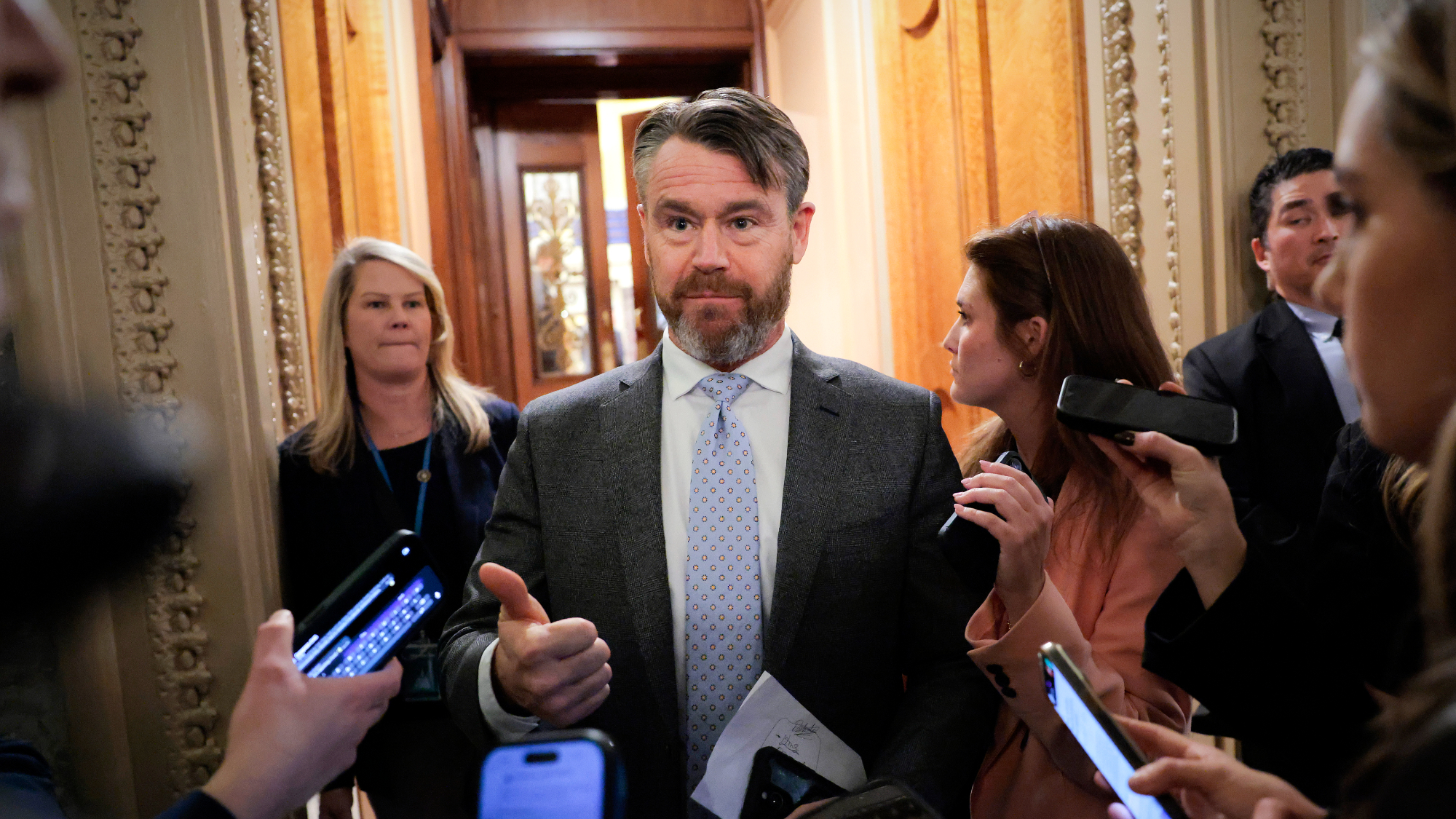The new age of book banning
How America’s culture wars collided with parents and legislators who want to keep their kids away from ‘dangerous’ ideas


A free daily email with the biggest news stories of the day – and the best features from TheWeek.com
You are now subscribed
Your newsletter sign-up was successful
Even before the invention of the printing press, books have been deemed subversive and threatening by authoritarian rulers. And maneuvers like book banning, confiscation and burning have been used repeatedly by tyrants fearful of a fully informed citizenry.
Book banning also has a long history in the U.S., from censors seeking to keep Harriet Beecher Stowe’s abolitionist novel, “Uncle Tom’s Cabin,” out of the hands of readers to the targeting of birth control advocacy under the 1873 Comstock Act. But the country has never seen anything quite like today’s national campaign to silence voices disfavored by many in the contemporary Republican Party.
When did the recent book purge begin?
After the Covid-19 pandemic, far-right activists created a series of ideological bogeymen to wage war against, including critical race theory and what President Donald Trump calls “gender insanity” — a catch-all term that he and his allies use to describe anything that involves LGBTQ+ identity. Activist organizations like Moms for Liberty sought to take over local school boards and police the content of books in school libraries, sifting through literature to identify and eliminate race and gender-related content, arguing they were targeting material that was too explicit for children or young adults.
The Week
Escape your echo chamber. Get the facts behind the news, plus analysis from multiple perspectives.

Sign up for The Week's Free Newsletters
From our morning news briefing to a weekly Good News Newsletter, get the best of The Week delivered directly to your inbox.
From our morning news briefing to a weekly Good News Newsletter, get the best of The Week delivered directly to your inbox.
“Never before in the life of any living American have so many books been systematically removed from school libraries across the country,” said PEN America, documenting what it claims has been nearly 23,000 book bans in the country since 2021. Most of these efforts are happening in public school districts nationwide, as conservative parents and activists identify an ever-growing number of ideas to which they do not want young people to have exposure. Many Republicans disagree. States and school districts are merely “providing students with a quality education free from sexualization and harmful materials that are not age-appropriate,” said Florida Gov. Ron DeSantis (R).
Increasingly, bans are being driven by elected officials rather than by parents raising concerns about a book. In November 2024, for example, the Florida Department of Education released a list of more than 700 books that had been banned in state public schools during the 2023-2024 school year, saying that “sexually explicit materials do not belong in schools.”
Which books have been targeted?
Some conservatives have challenged PEN America’s classification of book bans, arguing that many books the organization claims had been removed from schools in 2021 and 2022 were either under review or simply moved to a different age section of the library. In reality, there are “few actual book removals, and they are overwhelmingly based on parental objections to sexually explicit content,” said Jay P. Greene, Max Eden and Madison Marino in a 2023 report at The American Enterprise Institute. The organization’s definition of book bans focuses on “situations where objections or prohibitions result in previously available books being taken off limits,” said PEN America, replying to criticism of its methodology.
PEN America’s list of the most banned books of 2025 includes recent young adult novels and classics like Judy Blume’s “Forever.” The fourth-most-banned book is Malinda Lo’s “Last Night at the Telegraph Club,” about an immigrant teenager, Lily Hu, who goes to a lesbian bar with a friend. The book is “beautifully written historical fiction about giddy, queer first love,” said Kirkus Reviews. It wasn’t beautiful enough for the South Carolina Board of Education, which made it one of 22 titles forbidden from all public school libraries in the state in 2025.
A free daily email with the biggest news stories of the day – and the best features from TheWeek.com
Another frequent target of right-wing censors is Sarah J. Maas’ young adult book series “A Court of Thorns and Roses,” which is the “story of a poor, disenfranchised young woman who escapes an abusive, tyrannical boyfriend; finds an egalitarian wonderland; learns to read; takes contraceptives and has sex on her terms,” said Jezebel. Book-banners hate it because there's “nothing as dangerous to the dried up strictures of the status quo as a mind on fire.”
David Faris is a professor of political science at Roosevelt University and the author of "It's Time to Fight Dirty: How Democrats Can Build a Lasting Majority in American Politics." He's a frequent contributor to Newsweek and Slate, and his work has appeared in The Washington Post, The New Republic and The Nation, among others.
-
 Switzerland could vote to cap its population
Switzerland could vote to cap its populationUnder the Radar Swiss People’s Party proposes referendum on radical anti-immigration measure to limit residents to 10 million
-
 Political cartoons for February 15
Political cartoons for February 15Cartoons Sunday's political cartoons include political ventriloquism, Europe in the middle, and more
-
 The broken water companies failing England and Wales
The broken water companies failing England and WalesExplainer With rising bills, deteriorating river health and a lack of investment, regulators face an uphill battle to stabilise the industry
-
 The Mandelson files: Labour Svengali’s parting gift to Starmer
The Mandelson files: Labour Svengali’s parting gift to StarmerThe Explainer Texts and emails about Mandelson’s appointment as US ambassador could fuel biggest political scandal ‘for a generation’
-
 Democrats win House race, flip Texas Senate seat
Democrats win House race, flip Texas Senate seatSpeed Read Christian Menefee won the special election for an open House seat in the Houston area
-
 How ‘Manchesterism’ could change the UK
How ‘Manchesterism’ could change the UKThe Explainer The idea involves shifting a centralized government to more local powers
-
 ‘Dark woke’: what it means and how it might help Democrats
‘Dark woke’: what it means and how it might help DemocratsThe Explainer Some Democrats are embracing crasser rhetoric, respectability be damned
-
 Three consequences from the Jenrick defection
Three consequences from the Jenrick defectionThe Explainer Both Kemi Badenoch and Nigel Farage may claim victory, but Jenrick’s move has ‘all-but ended the chances of any deal to unite the British right’
-
 San Francisco tackles affordability problems with free child care
San Francisco tackles affordability problems with free child careThe Explainer The free child care will be offered to thousands of families in the city
-
 ‘It may portend something more ominous’
‘It may portend something more ominous’Instant Opinion Opinion, comment and editorials of the day
-
 Trump, Senate GOP block Venezuela war powers vote
Trump, Senate GOP block Venezuela war powers voteSpeed Read Two Republicans senators flipped their vote back amid GOP pressure
